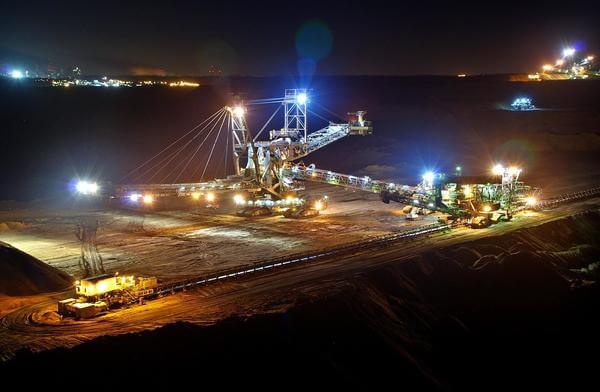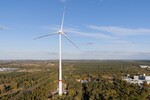News Release from windfair.net
Wind Industry Profile of
Enough is enough!
"Our new report for policymakers goes beyond simply showing that environmental change can increase risks to peace and security. That’s established," says SIPRI Director and Environment of Peace author Dan Smith.
In their report, the researchers list that today about a quarter of all species are threatened with extinction, the number of pollinating insects and soil quality is rapidly declining, while the exploitation of natural resources such as forests or fish stocks continues at unsustainable levels. Climate change is additionally causing extreme weather events such as storms and heat waves to become more frequent and intense, reducing yields of key food crops and increasing the risk of large-scale crop failure.
These effects are already being clearly felt in industrialized nations, too. This is the case in Australia, which has been governed by various Conservative Prime Ministers over the past decade, most recently Scott Morrison. The country is one of the largest coal producers in the world. But while the central government has long clung to the fossil fuel, a remarkable transformation has taken place in the states and territories in recent years. While Prime Minister Morrison, with a lump of coal in his hand, advertised the exploitation of this resource in Parliament and appointed Angus Taylor, a proven wind power opponent, as Minister for Energy and Emissions Reduction, the states ensured at regional level that energy transition gained speed in Australia.
With remarkable success: In recent years, a great many rooftop solar systems have been installed throughout the country, the share of wind and solar energy in the state of South Australia is 64 percent, large battery plants have been built, and there is an expectation that the Australian power grid could run on 100 percent renewable energy at certain times within three years.
Nevertheless, in the past three years, the country has been massively affected by the failures of the past: in 2019/2020, devastating forest fires spread across eastern and southeastern Australia, killing an incredible number of animals in the most horrific way, destroying thousands of homes, and causing dozens of deaths on the human side as well. The number of dead animals caused by these bushfires is estimated at over one billion.
At the beginning of 2022 - after several years of extreme drought - eastern Australia experienced an exceptionally wet summer due to the La Nina weather phenomenon. The consequences: the worst floods in decades with several deaths.

A lot of coal is still mined in Australia (Image: Pixabay)
Now Australians have apparently had enough of it: a general election was held last weekend - and the Conservatives were voted out of office. New Labor Prime Minister Anthony Albanese immediately announced a new course for the government in his inaugural speech: "Together, we can end the climate wars. Together, we can take advantage of the opportunity for Australia to be a renewable energy superpower."
Speaking to the BBC, 59-year-old Albanese stressed, "Australian businesses know that good action on climate change is good for jobs and good for our economy, and I want to join the global effort." This includes, among other things, a drastic tightening of emission targets and the expansion of renewable energies.
Just one day after being sworn in as prime minister, Albanese announced new goals at the 'Quad Meeting,' according to RenewEconomy, "We will act in recognition that climate change is the main economic and security challenge for the island countries of the Pacific. Under my government, Australia will set a new target to reduce emissions by 43 per cent by 2030, putting us on track for net zero by 2050."
How ambitious the new Premier really is remains to be seen, however, because of the four 'Quad' nations - the U.S., Japan, India and Australia - these are still the weakest targets: The U.S. has pledged to cut emissions 50 to 52 percent below 2005 levels by 2030, and Japan is aiming for a 46 percent reduction by 2030. India's target is lower, at 33 to 35 percent, but it does not have the same economic power as Australia. And so far, Albanese has also been cautious about calls to phase out coal or block the opening of new coal mines.
It therefore remains to be seen how much pressure the states will have to exert before the central government will truely join in.
- Author:
- Katrin Radtke
- Email:
- presse@windmesse.de
- Keywords:
- Australia, election, Conservatives, Labor, clmate change, bush fire, flood, emissions, reduction, net zero, Quad, goal, target























